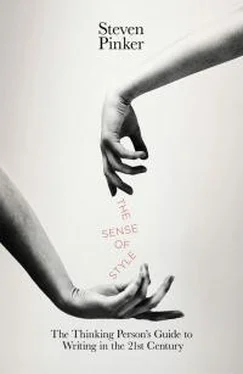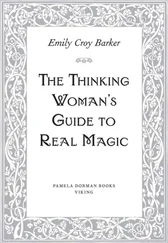Many purists maintain that the only correct sense of a word is the original one. That’s why they insist, for example, that transpire can only mean “become known,” not “take place” (since it initially meant “release vapor,” from the Latin spirare, “breathe”), and that decimate can only mean “killing one in ten” (since it originally described the execution of every tenth soldier in a mutinous Roman legion). The misconception is so common that it has been given a name: the etymological fallacy. It can be debunked with a glance at any page of a historical reference book, such as the Oxford English Dictionary , which will show that very few words retain their original senses. Deprecate used to mean “ward off by prayer,” meticulous once meant “timid,” and silly went from “blessed” to “pious” to “innocent” to “pitiable” to “feeble” to today’s “foolish.” And as Kory Stamper, an editor at Merriam-Webster, has pointed out, if you insist that decimate be used only with its original meaning, “kill one in ten,” shouldn’t you also insist that December be used with its original meaning, “the tenth month in the calendar”?
The last refuge of the stickler is the claim that proper usages are more logical than the alternatives. As we shall see, the claim gets it backwards. Many of the commonest usage errors are the result of writers thinking logically when they should be mindlessly conforming to convention. Writers who spell lose as loose (which would make it follow the pattern in choose ), who punctuate the possessive of it as it’s (just as we punctuate the possessive of Pat as Pat’s ), or who use enormity to mean “the quality of being enormous” (just as we use hilarity to mean the quality of being hilarious) are not being illogical. They are being too logical, while betraying their lack of familiarity with the conventions of the printed page. This may be grounds for suspicion by the reader and a prod to self-improvement for the writer, but it is not a failure of consistency or logic.
And this brings us to the reasons to obey some prescriptive rules (the ones accepted by good writers, as opposed to the phony ones that good writers have always ignored). One is to provide grounds for confidence that the writer has a history of reading edited English and has given it his full attention. Another is to enforce grammatical consistency: to implement rules, such as agreement, that everyone respects but that may be hard to keep track of when the sentence gets complicated (see chapter 4). The use of consistent grammar reassures a reader that the writer has exercised care in constructing his prose, which in turn increases her confidence that he has exercised care in the research and thinking behind the prose. It is also an act of courtesy, because consistent trees are easier to parse and harder to misunderstand.
Still another reason to care about usage is to ratify a certain attitude to language. Careful writers and discerning readers delight in the profusion of words in the English lexicon, no two of which are exact synonyms. Many words convey subtle shades of meaning, provide glimpses into the history of the language, conform to elegant principles of assembly, or enliven prose with distinctive imagery, sound, and rhythm. Careful writers pick up the nuances of words by focusing on their makeup and their contexts over the course of tens of thousands of hours of reading. Their readers’ reward consists of partaking in—and, if they themselves write, helping to preserve—this rich patrimony. When a not-so-careful writer tries to gussy up his prose with an upmarket word that he mistakenly thinks is a synonym of a common one, like simplistic for simple or fulsome for full, his readers are likely to conclude the worst: that he has paid little attention to what he has read, is affecting an air of sophistication on the cheap, and is polluting a common resource.
To be sure, the language, to say nothing of all this solid globe, will survive such lapses. Many preferred senses stand their ground over long stretches of time despite constant battering by careless writers. There is no lexicographical version of Gresham’s Law in which the bad meaning of a word always drives out the good one. The preferred sense of disinterested as “impartial,” for example, has coexisted for centuries with its frowned-upon sense as “bored.” This should not be all that surprising, because many words embrace happily coexisting senses, such as literate, which means both “able to read” and “familiar with literature,” and religious, which means both “pertaining to religion” and “obsessively thorough.” The senses are usually sorted out by the context, so both survive. A language has plenty of room for multiple meanings, including the ones that good writers hope to preserve.
Still, writers will do themselves a favor, and increase the amount of pleasure in the world, if they use a word in the senses that are accepted by literate readers. This raises the question of how a careful writer can distinguish a legitimate rule of usage from a grandmother’s tale. The answer is unbelievably simple: look it up. Consult a modern usage guide or a dictionary with usage notes, such as Merriam-Webster Unabridged, American Heritage Dictionary, Encarta World English Dictionary, or Random House Dictionary (the one behind www.dictionary.com). Many people, particularly sticklers, are under the impression that every bubbe meise ever loosed on the world by a self-proclaimed purist will be backed up by the major dictionaries and manuals. In fact, these reference works, with their careful attention to history, literature, and actual usage, are the most adamant debunkers of grammatical nonsense. (This is less true of style sheets drawn up by newspapers and professional societies, and of manuals written by amateurs such as critics and journalists, which tend to mindlessly reproduce the folklore of previous guides.) 5
Take the quintessential bogus rule, the prohibition of split infinitives, according to which Captain Kirk should not have said to boldly go where no man has gone before, but rather to go boldly or boldly to go . Here’s what you will find if you look up “split infinitive” in the major guides:
American Heritage Dictionary: “The only rationale for condemning the construction is based on a false analogy with Latin. … In general, the Usage Panel accepts the split infinitive.”
Merriam-Webster Unabridged online dictionary: “Even though there has never been a rational basis for objecting to the split infinitive, the subject has become a fixture of folk belief about grammar. … Modern commentators … usually say it’s all right to split an infinitive in the interest of clarity. Since clarity is the usual reason for splitting, this advice means merely that you can split them whenever you need to.”
Encarta World English Dictionary: “There is no grammatical basis for rejecting split infinitives.”
Random House Dictionary: “Nothing in the history of the infinitive in English … supports the so-called rule, and in many sentences … the only natural place for the modifying adverb is between to and the verb.”
Theodore Bernstein, The Careful Writer: “There is nothing wrong with splitting an infinitive … except that eighteenth- and nineteenth-century grammarians, for one reason or another, frowned on it.”
Joseph Williams, Style: Toward Clarity and Grace: “The split infinitive is now so common among the very best writers that when we make an effort to avoid splitting it, we invite notice, whether we intend to or not.”
Читать дальше












